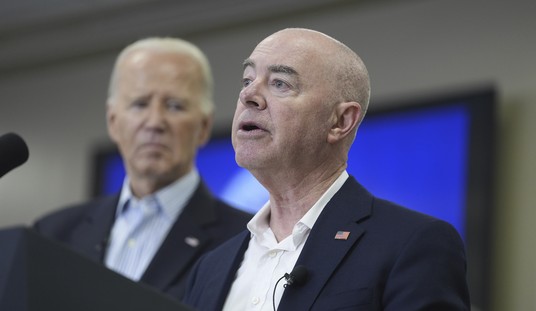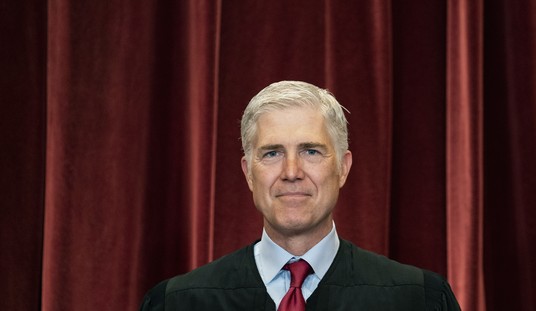Michael Totten describes Iran as a great nation trapped in the straitjacket of tyranny. He quotes Robert Kaplan who says, “of all the shatter zones in the greater Middle East, the Iranian core is unique: The instability Iran will cause will not come from its implosion, but from a strong, internally coherent Iranian nation that explodes outward from a natural geographic platform to shatter the region around it.” A big part of the problem in predicting the long term outcome of the drama in Iran — and a major reason why analysts could not anticipate it — arises from the interplay between a genuinely dynamic society and the political factions within it. This is not just a struggle “among great men”, which was probably what the analysts were watching. In this case, it is truer than usual to say that the “will of the people” will play a big part in how this ends in Iran.
The Wall Street Journal steps through the conventional scenarios that analysts have divided their crystal ball into. The scenarios are basically permutations of simple outcomes, a shotgun forecast covering all bases. They are:
* People power prevails.
* Mr. Ahmadinejad survives, by taking a moderate position.
* The forces of repression win within Iran, causing a backlash from the rest of the world.
* The protests are simply crushed by Ali Khamenei; repression intensifies.
* Ahmadinejad wins a recount or runoff, victorious but drastically weakened.
* Mousavi somehow prevails, and rules with an unknown agenda and in a standoff with the rest of the Iranian elite.
But one thing the WSJ is in no doubt about is that events in Iran caught most the administration flat-footed. They are still struggling to understand what is going on. It writes, “what’s striking in talking with American officials about such scenarios is how little they know about what is happening within Iran’s regime as the internal struggle plays out — and, hence, how hard it is to prepare for the ultimate outcome. Things almost never go according to plan in U.S.-Iranian relations anyway. Now, it’s hard to even have a plan.”
My guess is that even in Iran nobody really knows. The reason why information is so scarce in revolutionary situations is that politicians, like physicists observing a quantum phenomenon, are discovering the true value of an event for the first time. People are making their minds up about questions that have never been posed before. There was no way to estimate it hitherto because it never came up till now. About all that one can reasonably conjecture about the next few weeks is that Iran has broken symmetry, a term which means that it has fallen out of its old state and is tumbling into some other state, without any reasonable prospect of returning to the status quo ante. Think of it like a Mexican jumping bean hopping around the top of a sombrero. It will hop around the crown for a while. But then one day it will break symmetry and fall into the brim and bounce around the new state, but it will never regain the crown. The past is over.
The necessary implication is that Barack Obama’s engagement plan with Iran is probably dead. This does not mean that some kind of diplomatic initiative should not be made. Indeed, the US will be forced to engage Iran very soon in a way that is as yet unclear, but that engagement will almost certainly take a form that will be significantly different from the plans now laid. It will be a case of ‘back to the drawing board’. I think the best approach is to very broadly encourage things to settle in a way in general conformity with the long-term interests of the Iranian people. For although the US cannot directly affect events in Iran, it can warp the space — at least the conceptual space — around it, and hope that the landslide, after it has tumbled downhill as far as it it will go, will come to rest in a stable and benign way.
This is especially true because other regional powers will see the current Iranian situation as an opportunity for mischief, rather than as an opportunity to see the emergence of a legitimate Iranian regime. To see this, imagine how Hezbollah and Syria must feel right now, trembling at the thought the very ground may shifted from under their feet, feeling the penetrating gazes of those who only yesterday feared them, as only those who have lived as bullies can feel. Certainly al-Qaeda and Sunni extremist elements will not wish the Iranians well. From these considerations alone the US may find it in its interests, not only to put its ear to the ground, but also to cast a wary eye around at the jackals who are always drawn to the sound of death struggles.
Michael Totten observes that a truly democratic Iran would be a great power. In its own way a free Iran would destabilize the region — and probably make a nonsense of the current Obama engagement plan. Totten writes, “a democratic Iranian government would almost certainly cease and desist its toxic support for terrorist organizations and fascist political movements abroad, but it also wouldn’t likely give up its power to shape the Middle East. Powerful countries with quasi-imperial ambitions do not transform themselves into Belgium without something catastrophic happening first.” Should people power prevail in Iran, history in the region won’t stop, but it may be several shades lighter than otherwise.









Join the conversation as a VIP Member